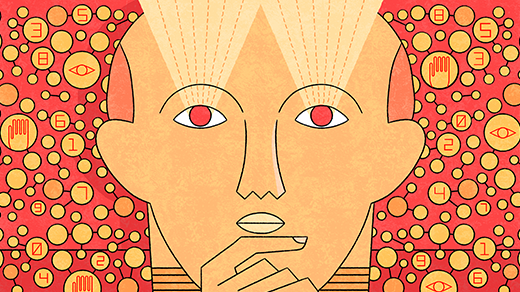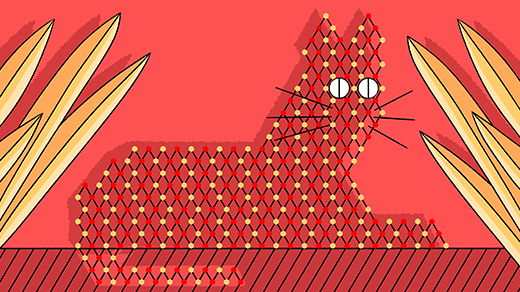Latest Articles
Science, Promise and Peril in the Age of AI
An exploration of how artificial intelligence is changing what it means to do science and math, and what it means to be a scientist.
Why Language Models Are So Hard To Understand
AI researchers are using techniques inspired by neuroscience to study how language models work — and to reveal how perplexing they can be.
How Can AI ID a Cat? An Illustrated Guide.
Neural networks power today’s AI boom. To understand them, all we need is a map, a cat and a few thousand dimensions.
How a Problem About Pigeons Powers Complexity Theory
When pigeons outnumber pigeonholes, some birds must double up. This obvious statement — and its inverse — have deep connections to many areas of math and computer science.
Catalytic Computing Taps the Full Power of a Full Hard Drive
Ten years ago, researchers proved that adding full memory can theoretically aid computation. They’re just now beginning to understand the implications.
Can AI Models Show Us How People Learn? Impossible Languages Point a Way.
Certain grammatical rules never appear in any known language. By constructing artificial languages that have these rules, linguists can use neural networks to explore how people learn.
Why Computer Scientists Consult Oracles
Hypothetical devices that can quickly and accurately answer questions have become a powerful tool in computational complexity theory.
Quantum Computers Cross Critical Error Threshold
In a first, researchers have shown that adding more “qubits” to a quantum computer can make it more resilient. It’s an essential step on the long road to practical applications.
Computer Scientists Establish the Best Way to Traverse a Graph
Dijkstra’s algorithm was long thought to be the most efficient way to find a graph’s best routes. Researchers have now proved that it’s “universally optimal.”









